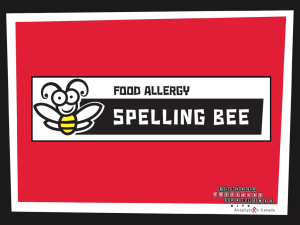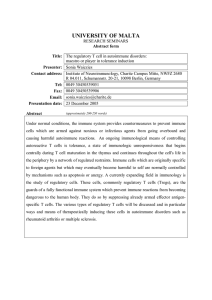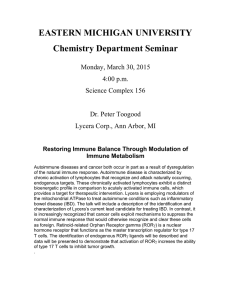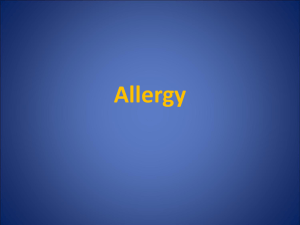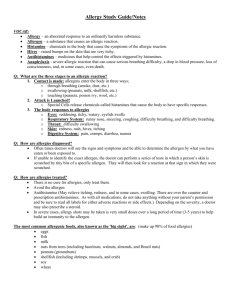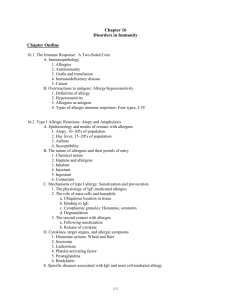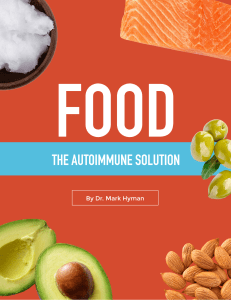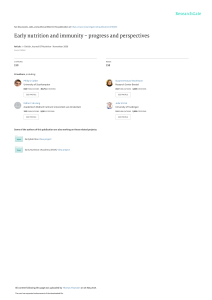Allergies & Autoimmune Diseases: Homework Answer Key
advertisement
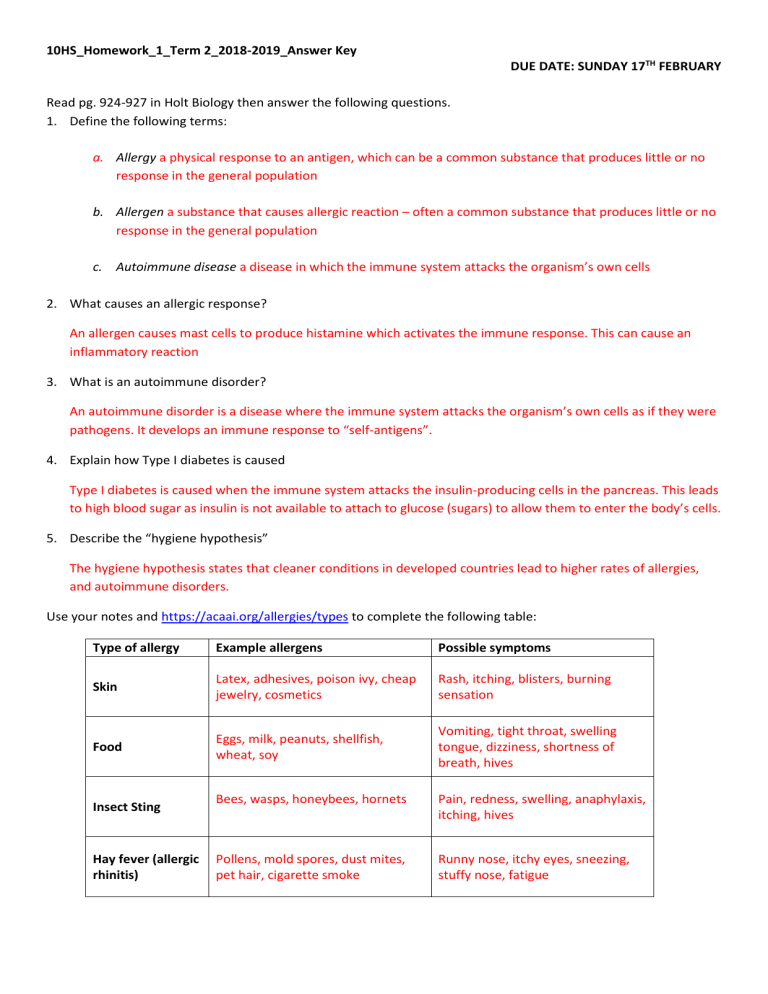
10HS_Homework_1_Term 2_2018-2019_Answer Key DUE DATE: SUNDAY 17TH FEBRUARY Read pg. 924-927 in Holt Biology then answer the following questions. 1. Define the following terms: a. Allergy a physical response to an antigen, which can be a common substance that produces little or no response in the general population b. Allergen a substance that causes allergic reaction – often a common substance that produces little or no response in the general population c. Autoimmune disease a disease in which the immune system attacks the organism’s own cells 2. What causes an allergic response? An allergen causes mast cells to produce histamine which activates the immune response. This can cause an inflammatory reaction 3. What is an autoimmune disorder? An autoimmune disorder is a disease where the immune system attacks the organism’s own cells as if they were pathogens. It develops an immune response to “self-antigens”. 4. Explain how Type I diabetes is caused Type I diabetes is caused when the immune system attacks the insulin-producing cells in the pancreas. This leads to high blood sugar as insulin is not available to attach to glucose (sugars) to allow them to enter the body’s cells. 5. Describe the “hygiene hypothesis” The hygiene hypothesis states that cleaner conditions in developed countries lead to higher rates of allergies, and autoimmune disorders. Use your notes and https://acaai.org/allergies/types to complete the following table: Type of allergy Example allergens Possible symptoms Skin Latex, adhesives, poison ivy, cheap jewelry, cosmetics Rash, itching, blisters, burning sensation Food Eggs, milk, peanuts, shellfish, wheat, soy Vomiting, tight throat, swelling tongue, dizziness, shortness of breath, hives Insect Sting Hay fever (allergic rhinitis) Bees, wasps, honeybees, hornets Pain, redness, swelling, anaphylaxis, itching, hives Pollens, mold spores, dust mites, pet hair, cigarette smoke Runny nose, itchy eyes, sneezing, stuffy nose, fatigue
